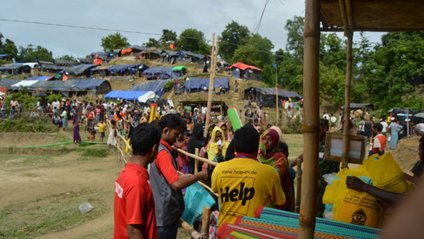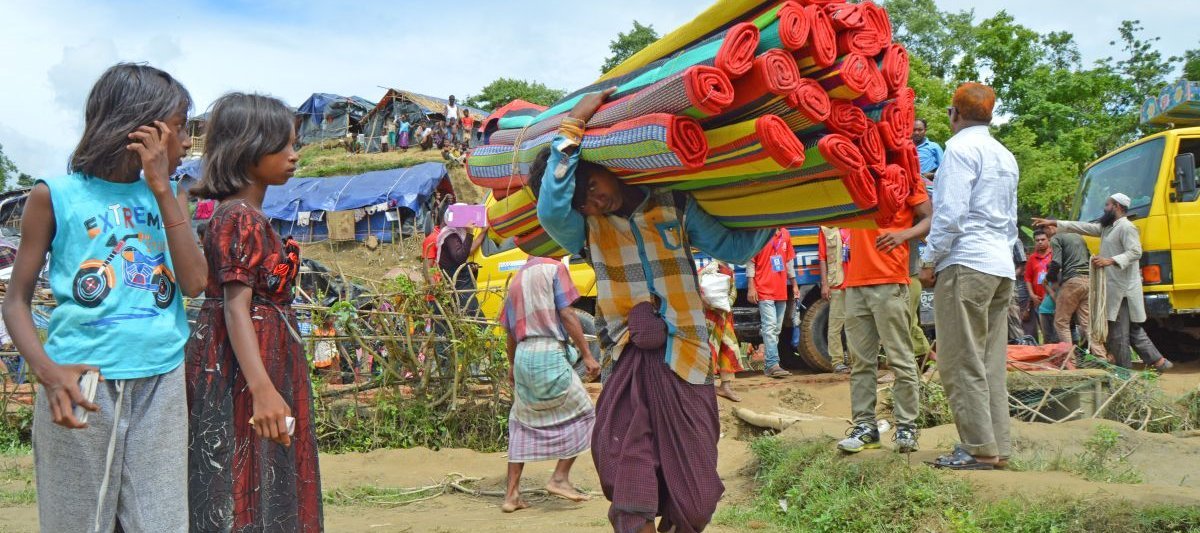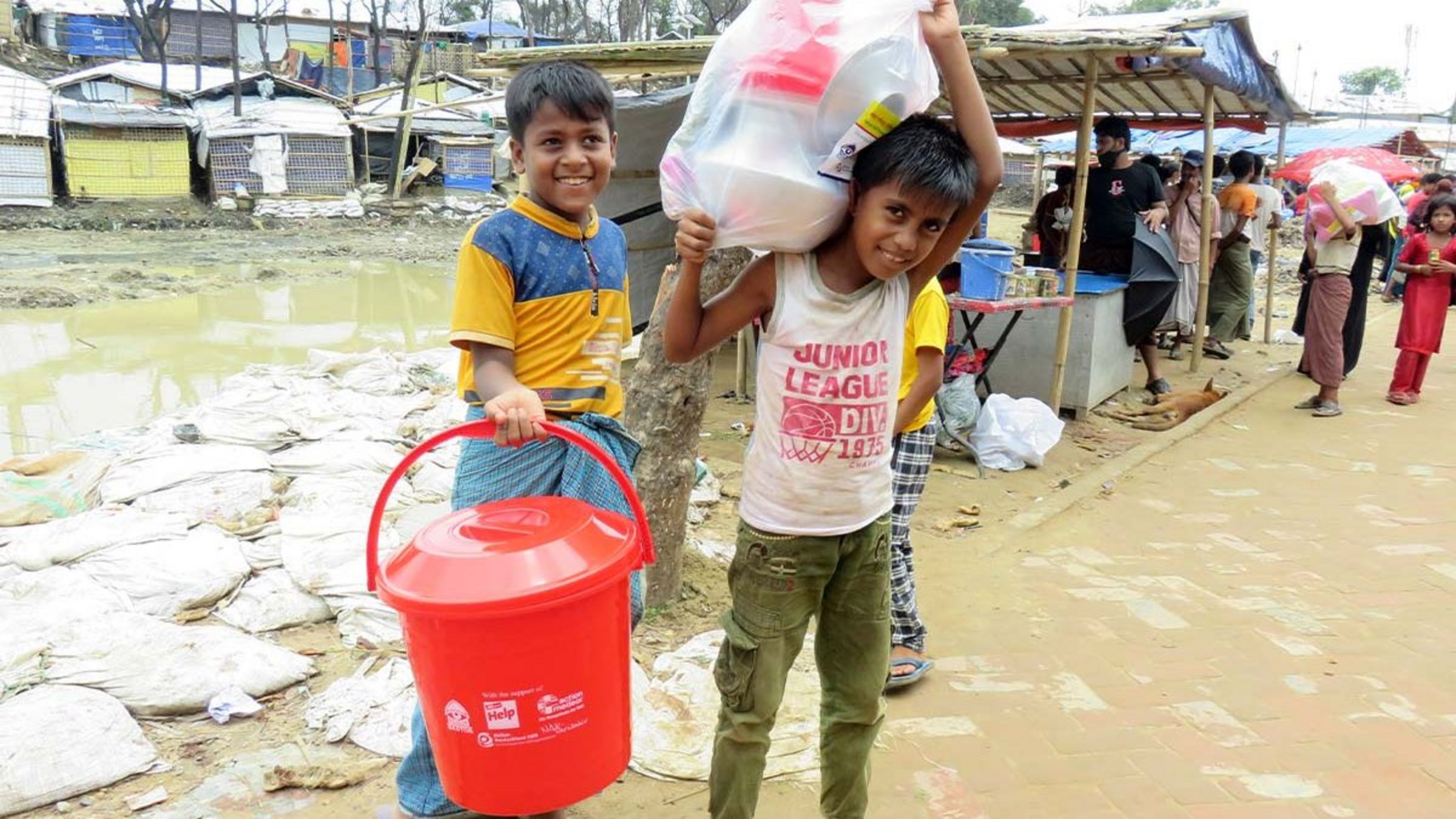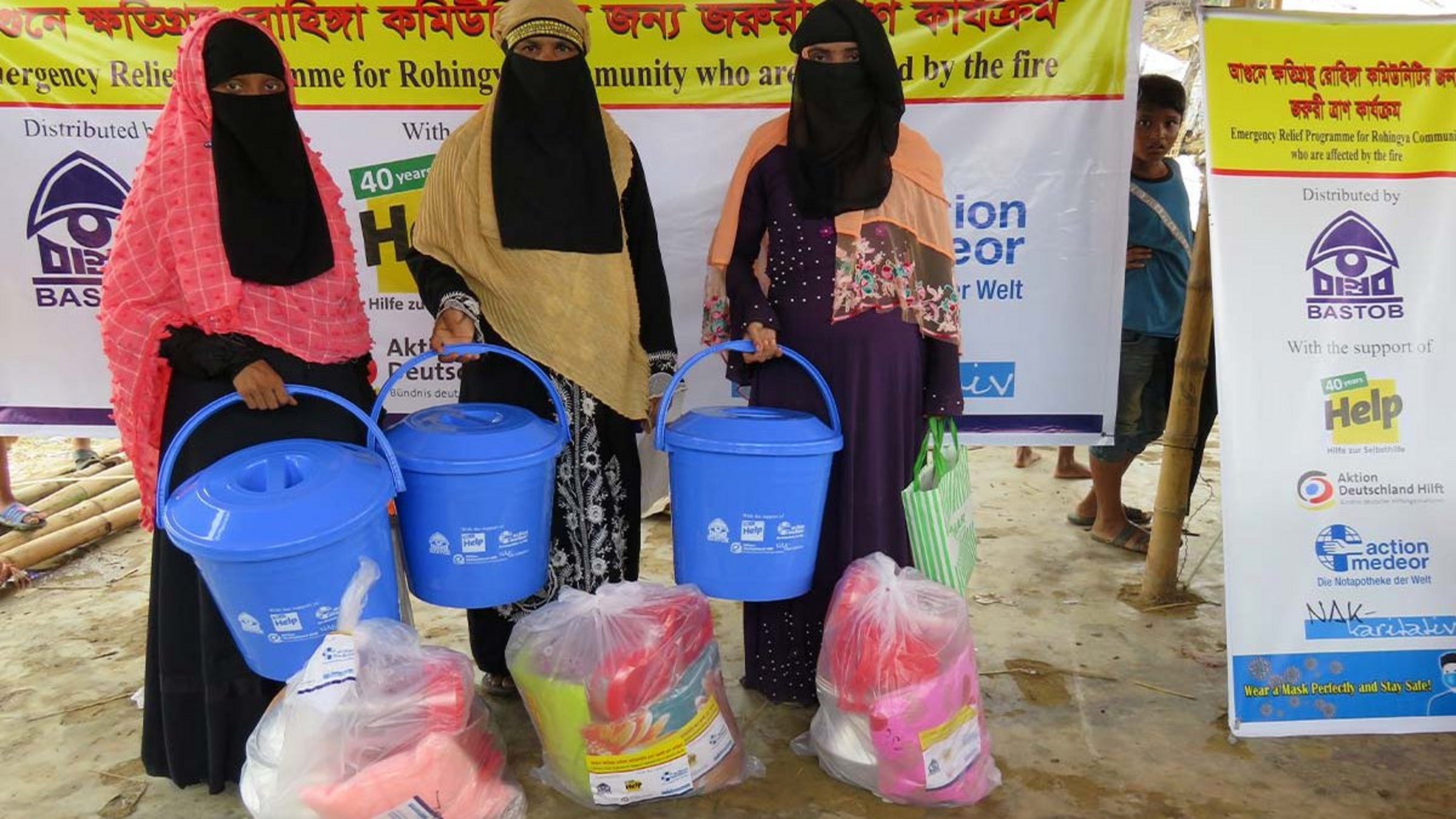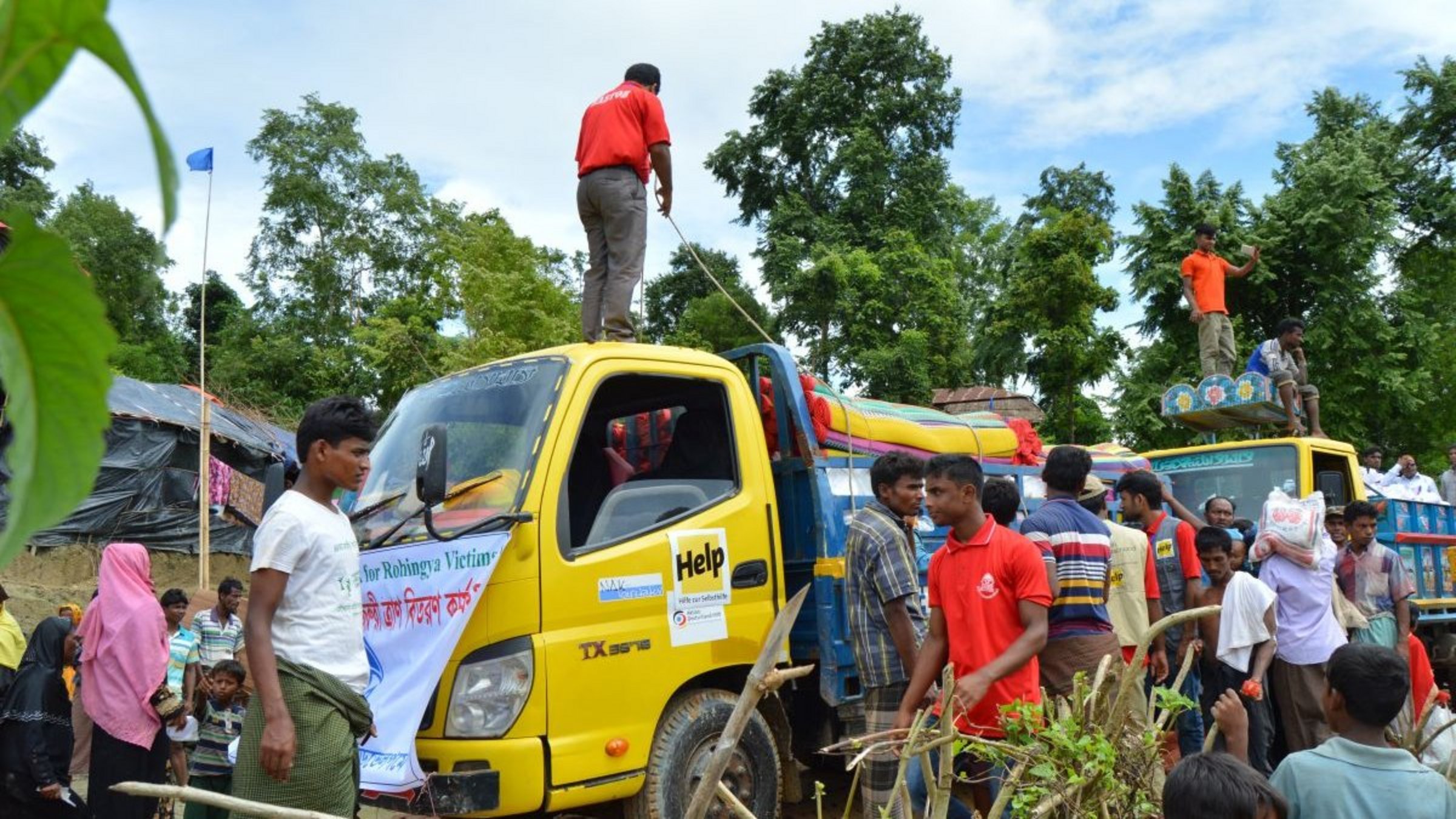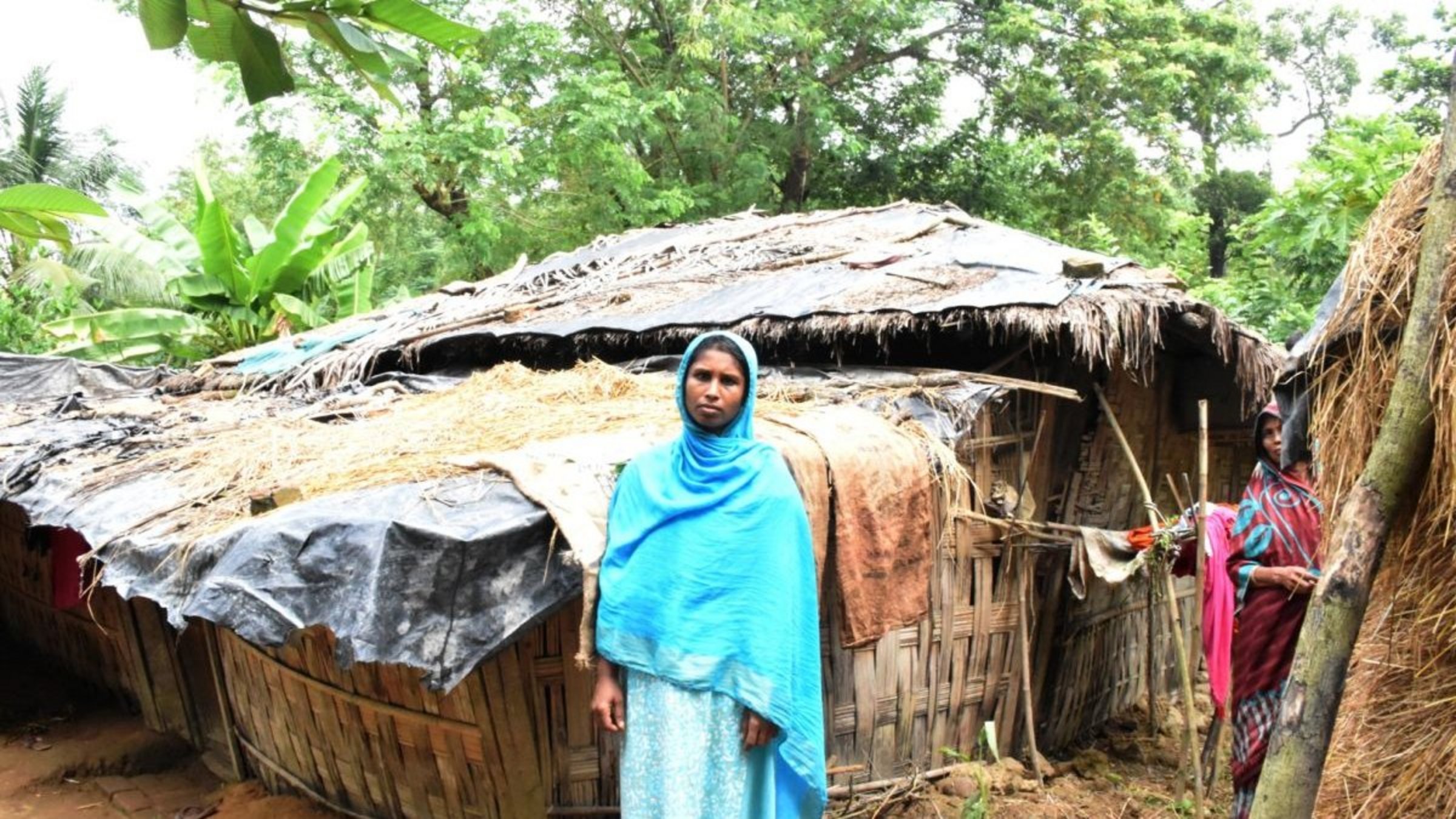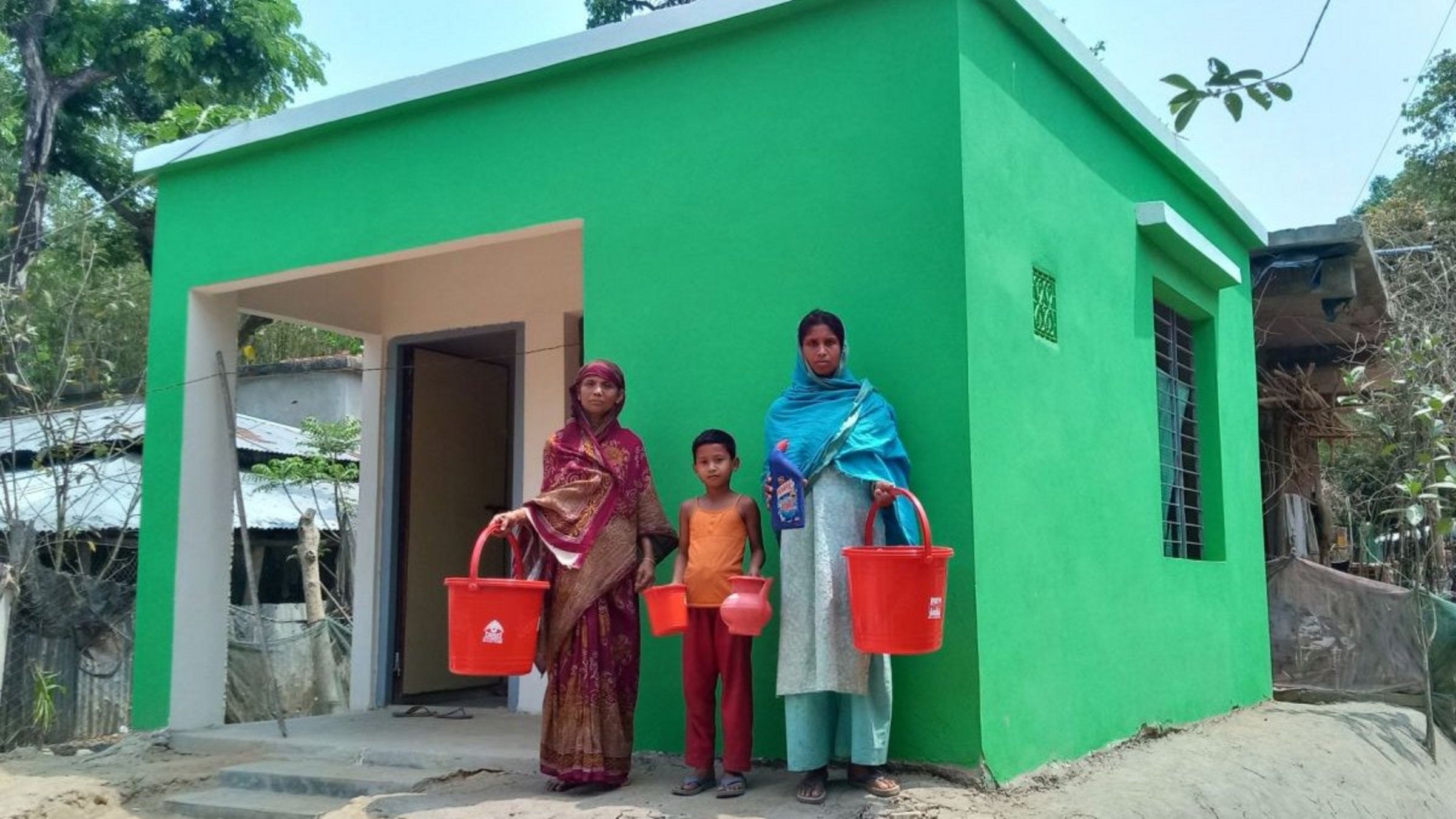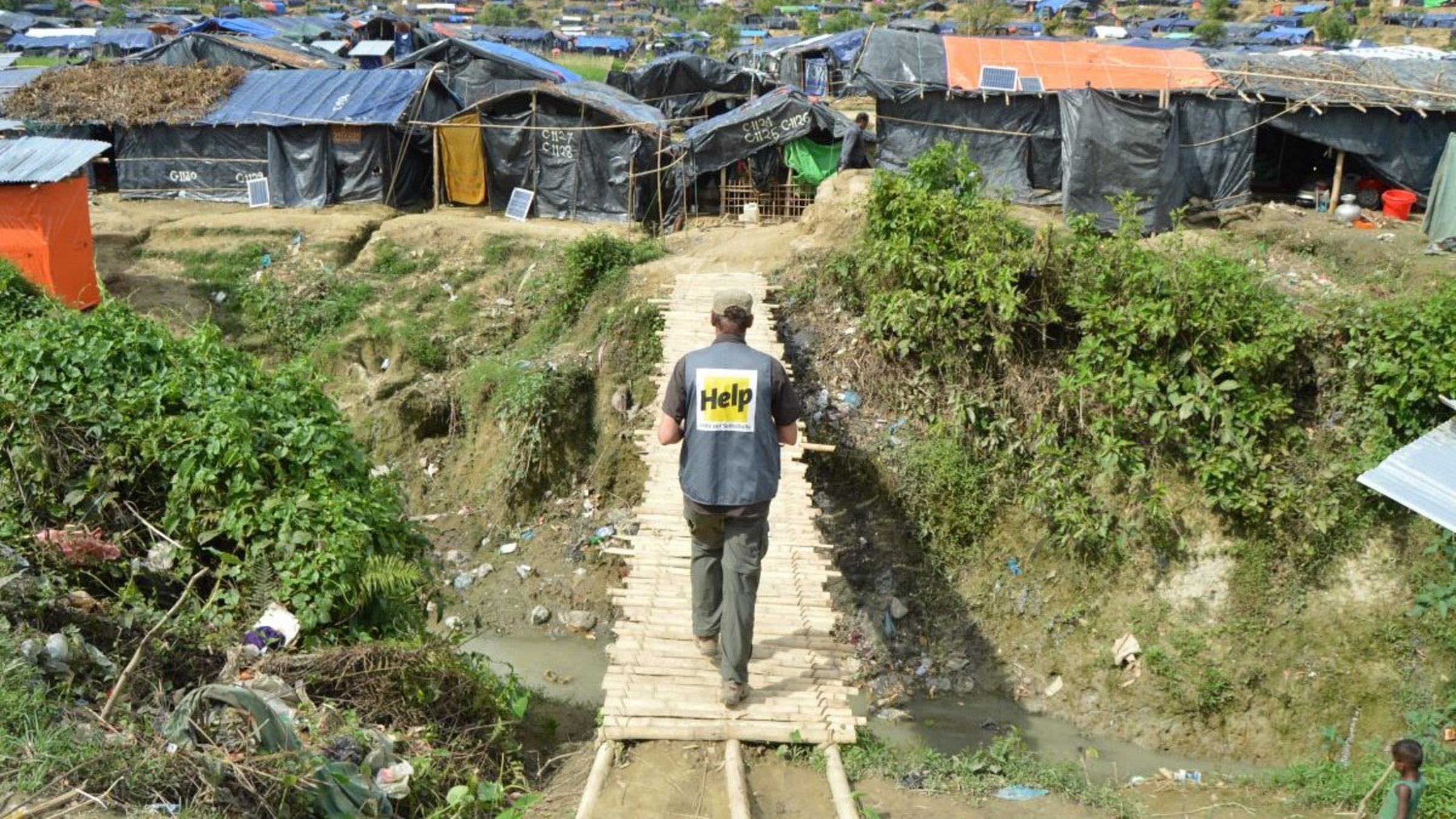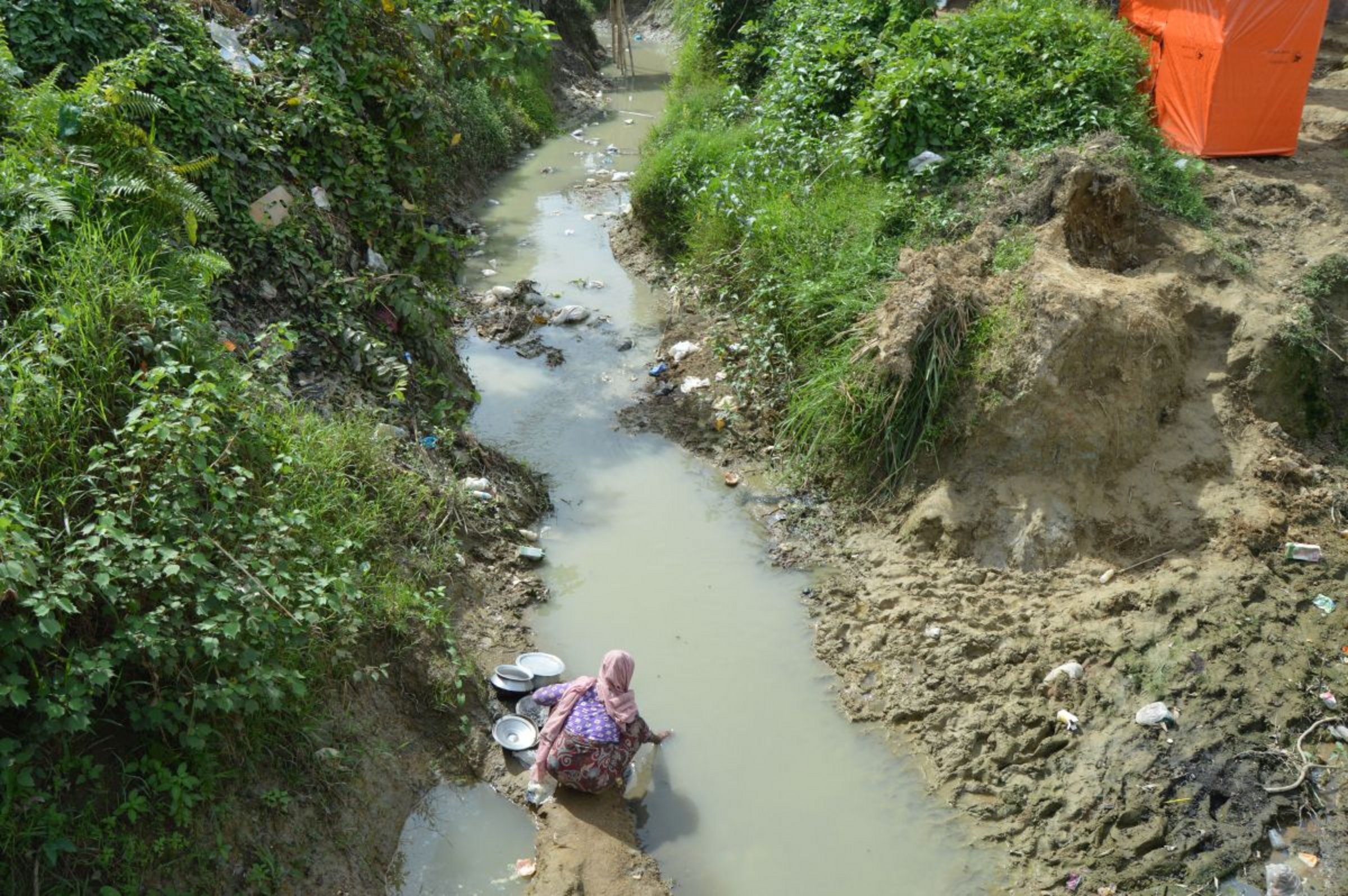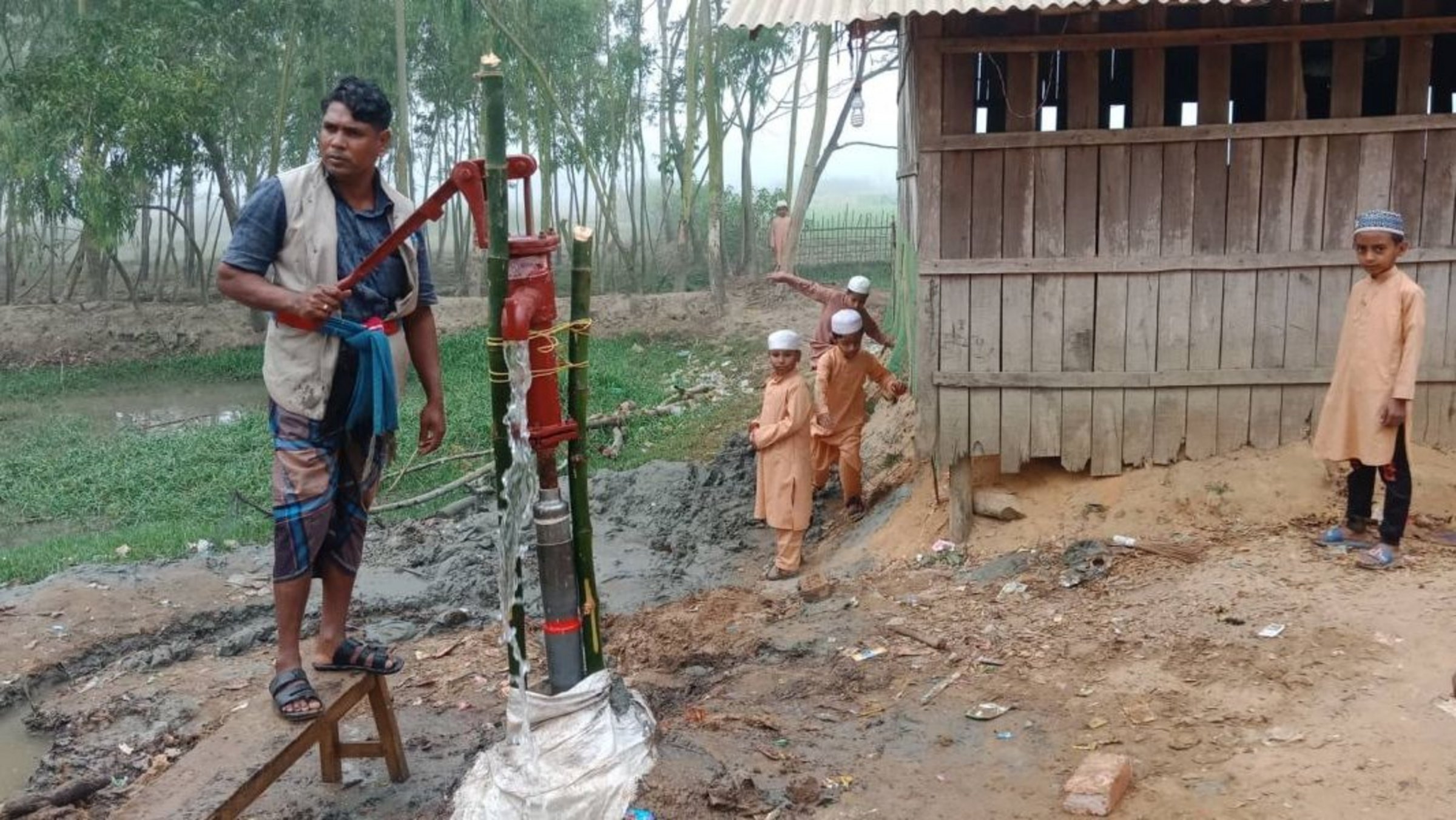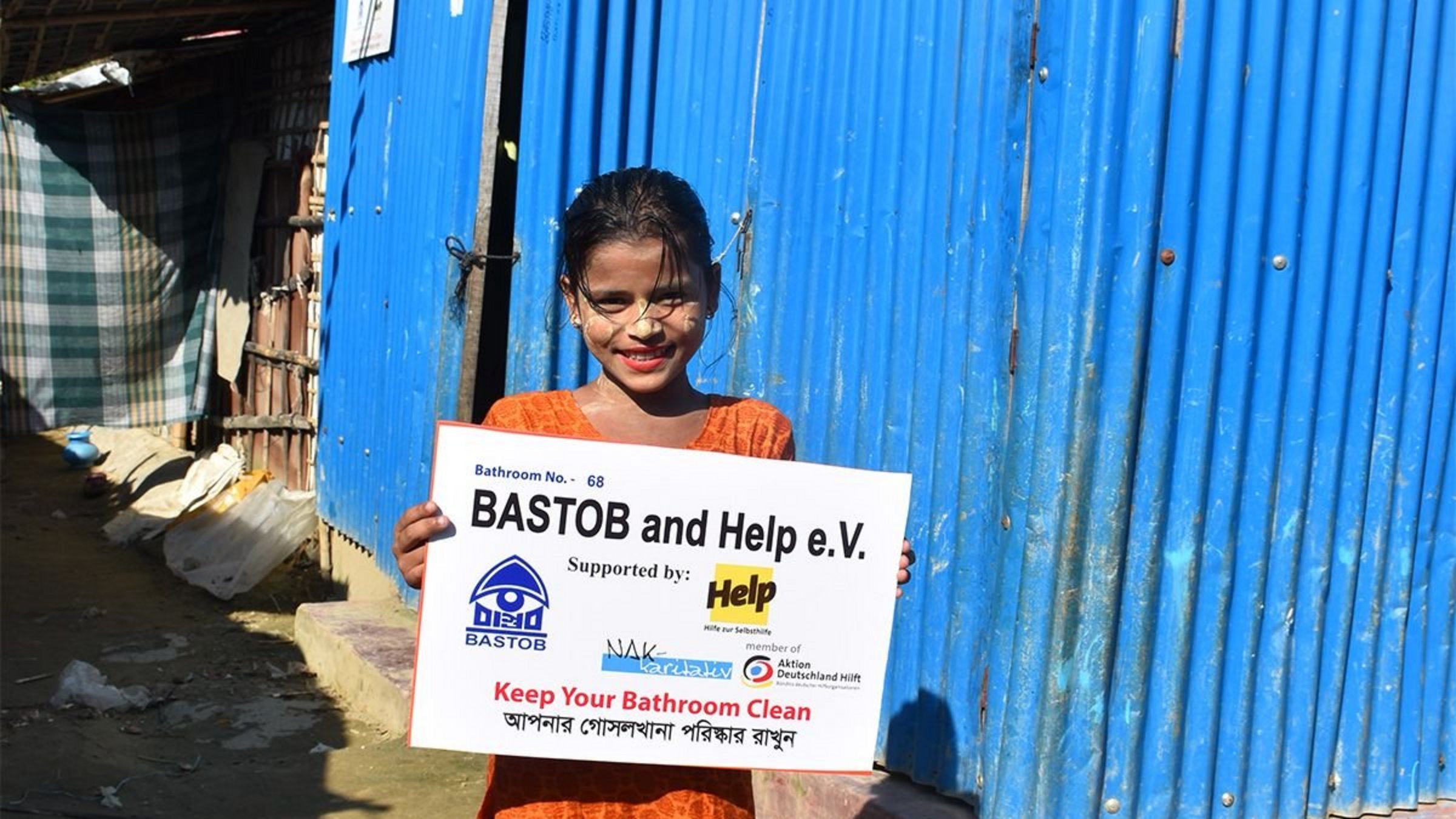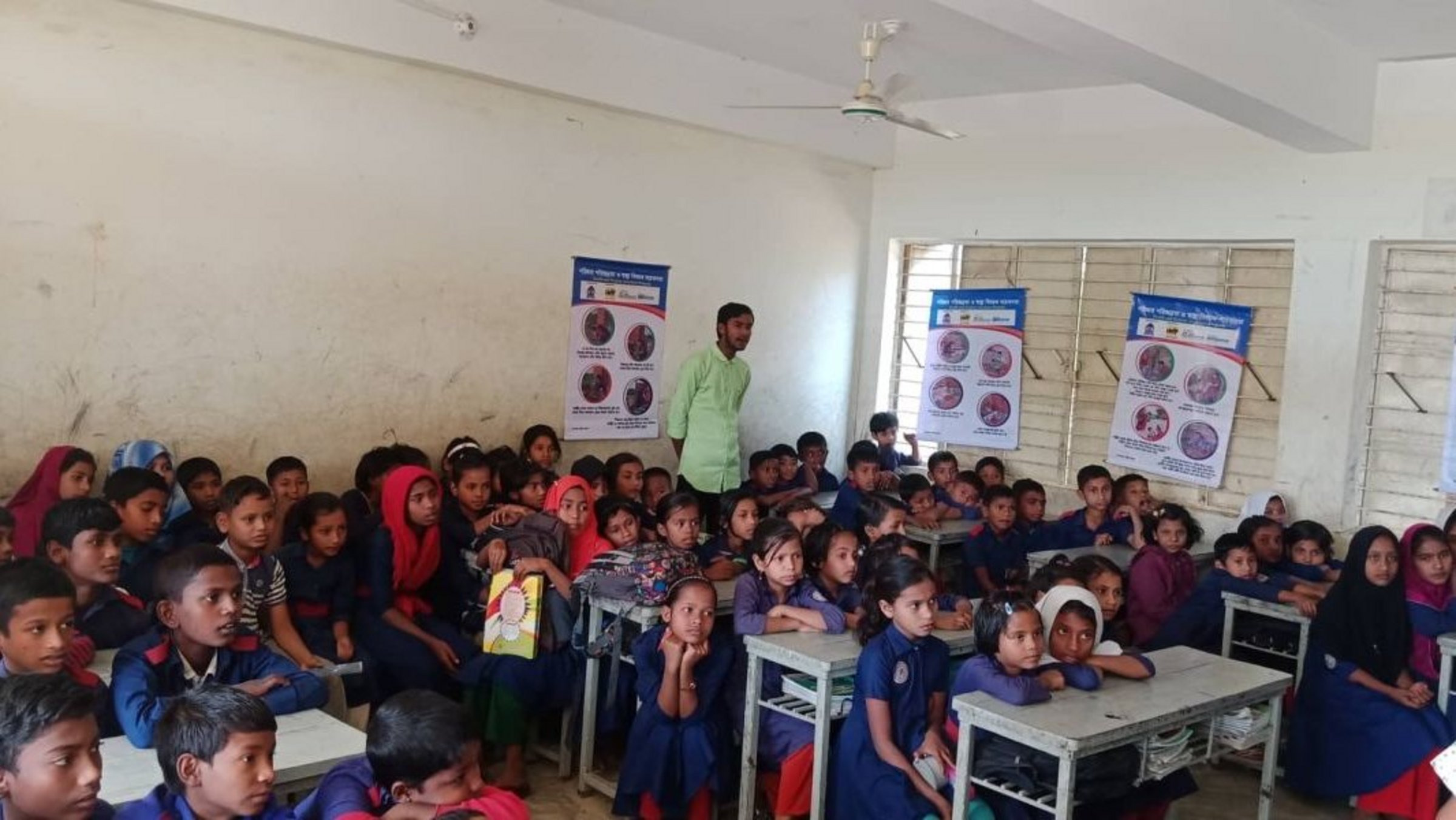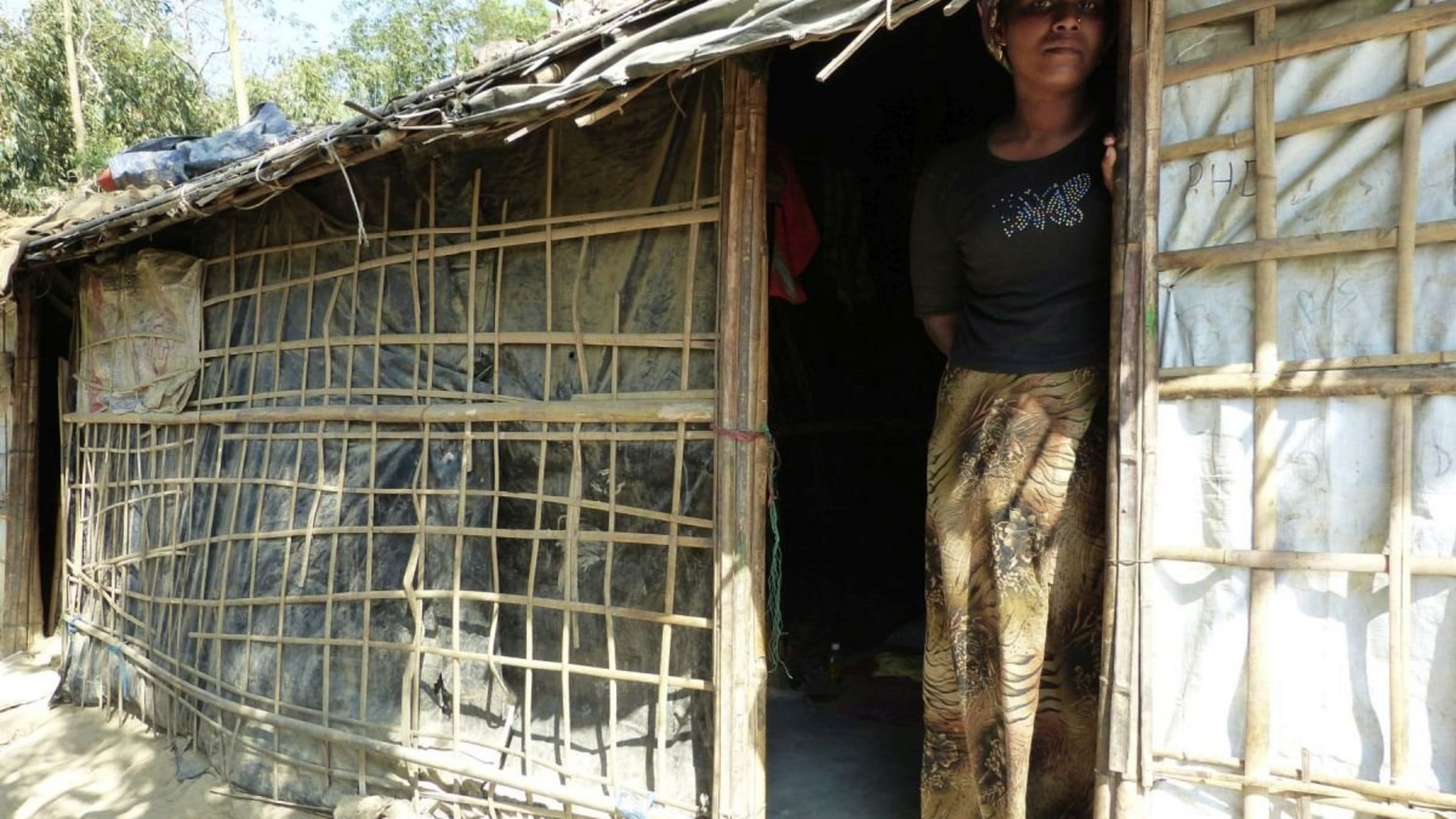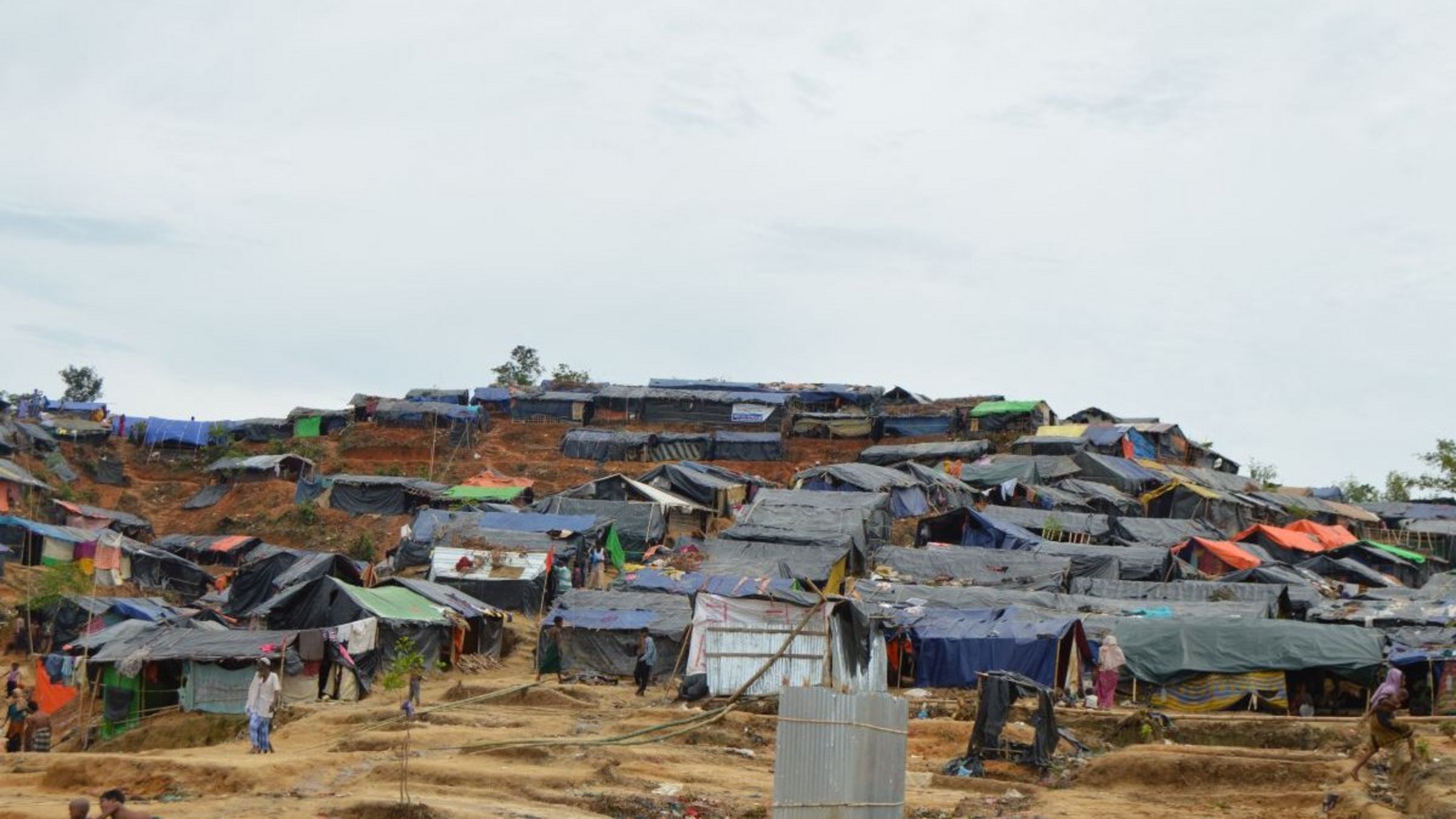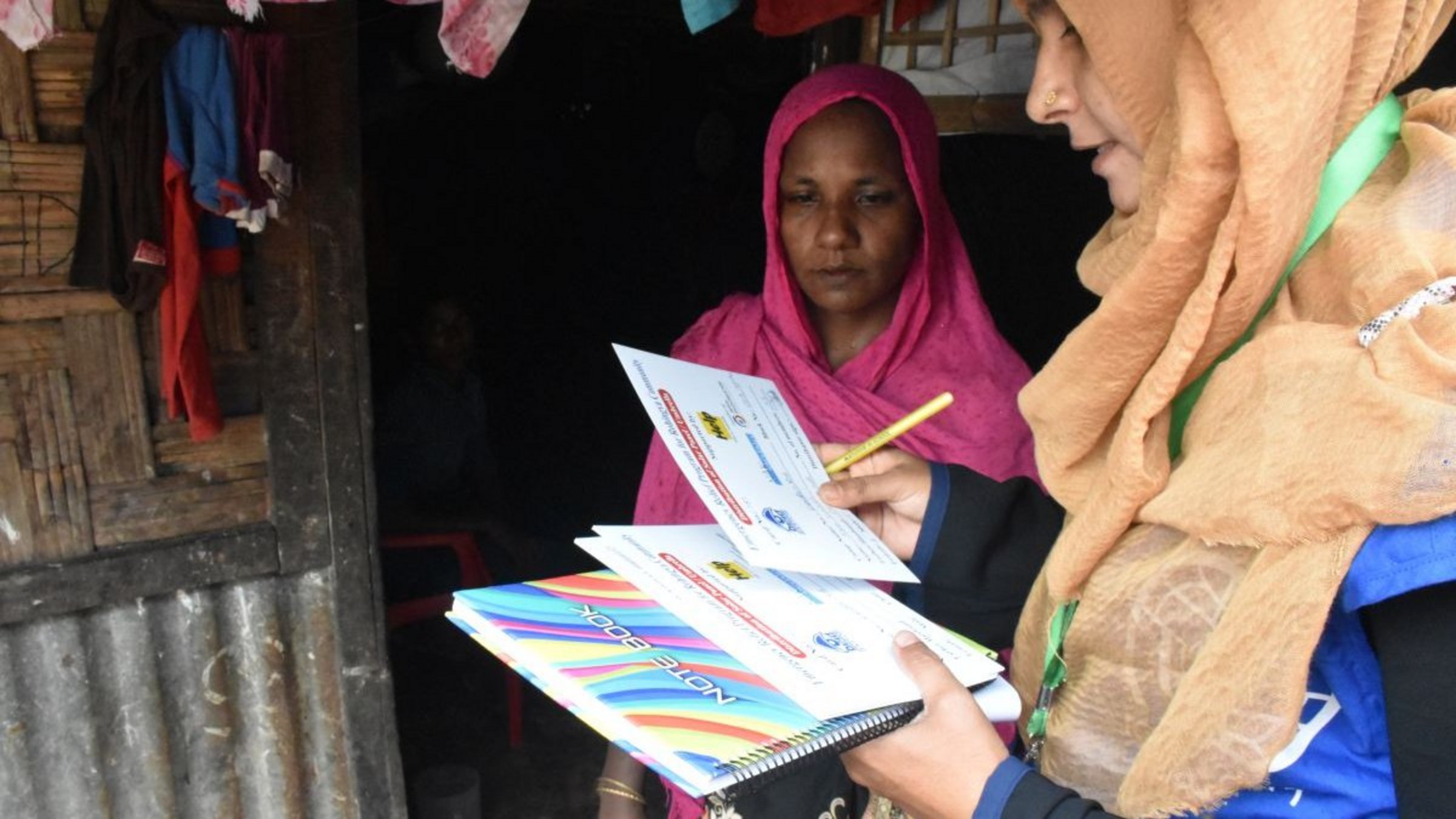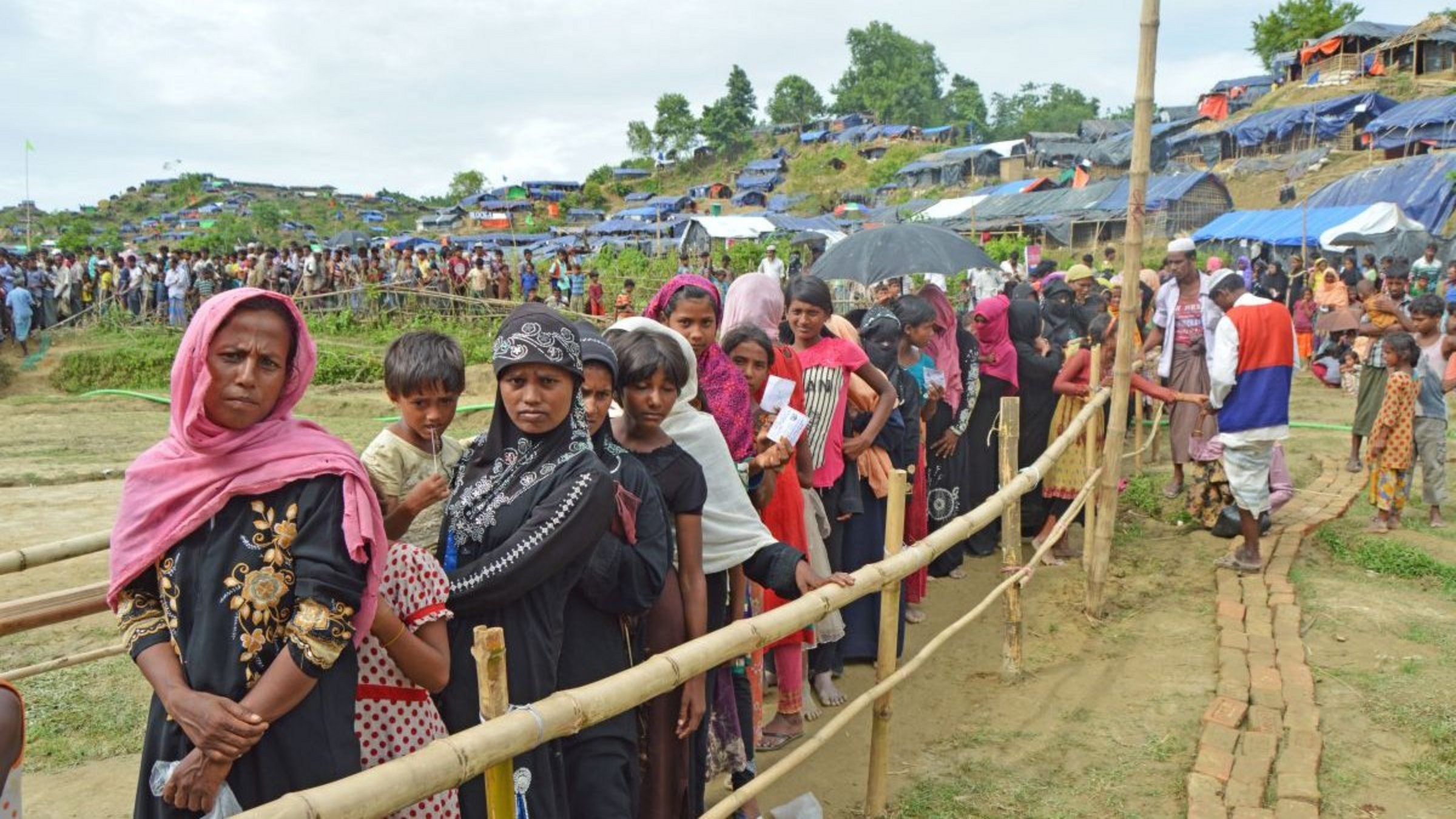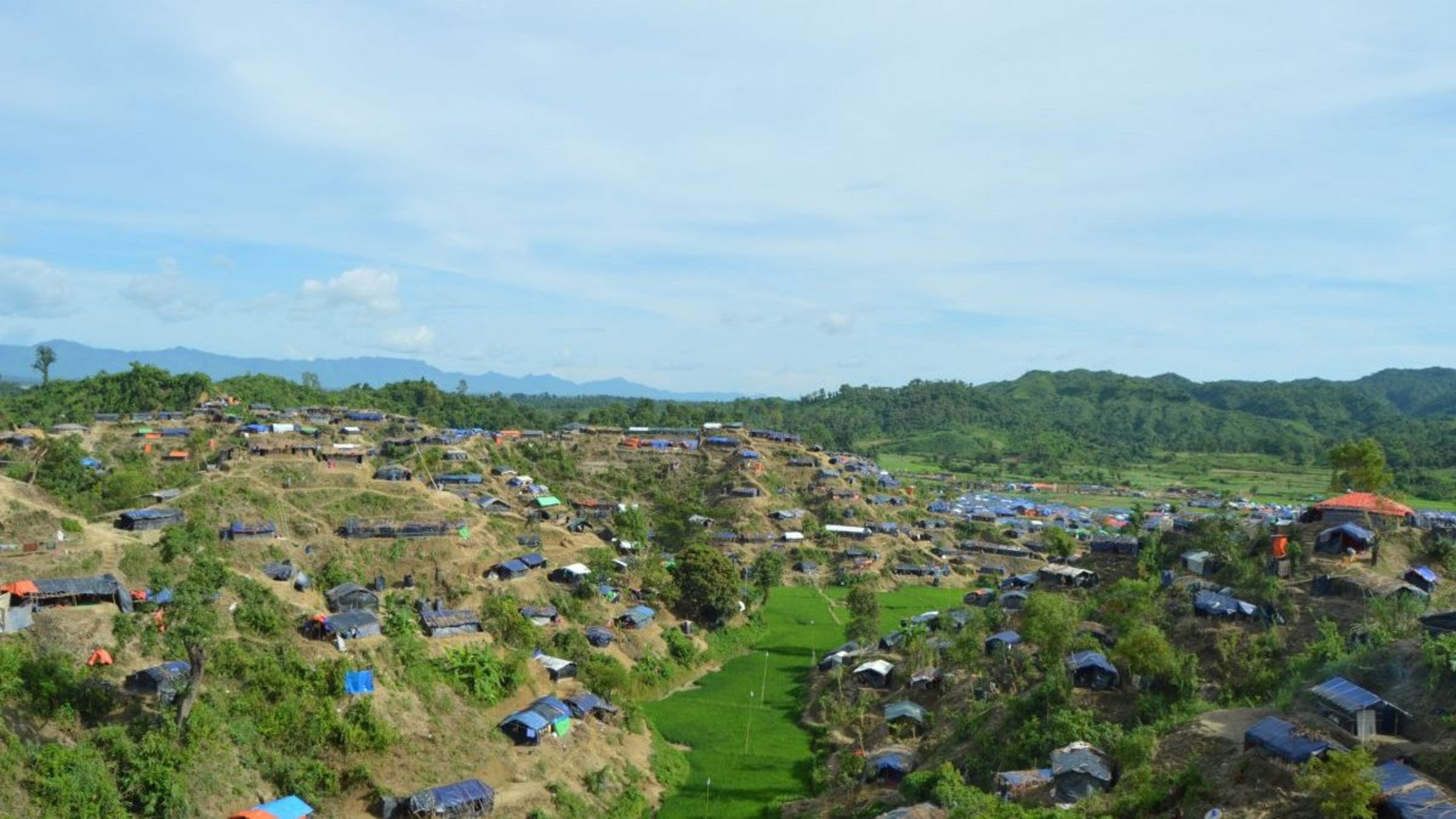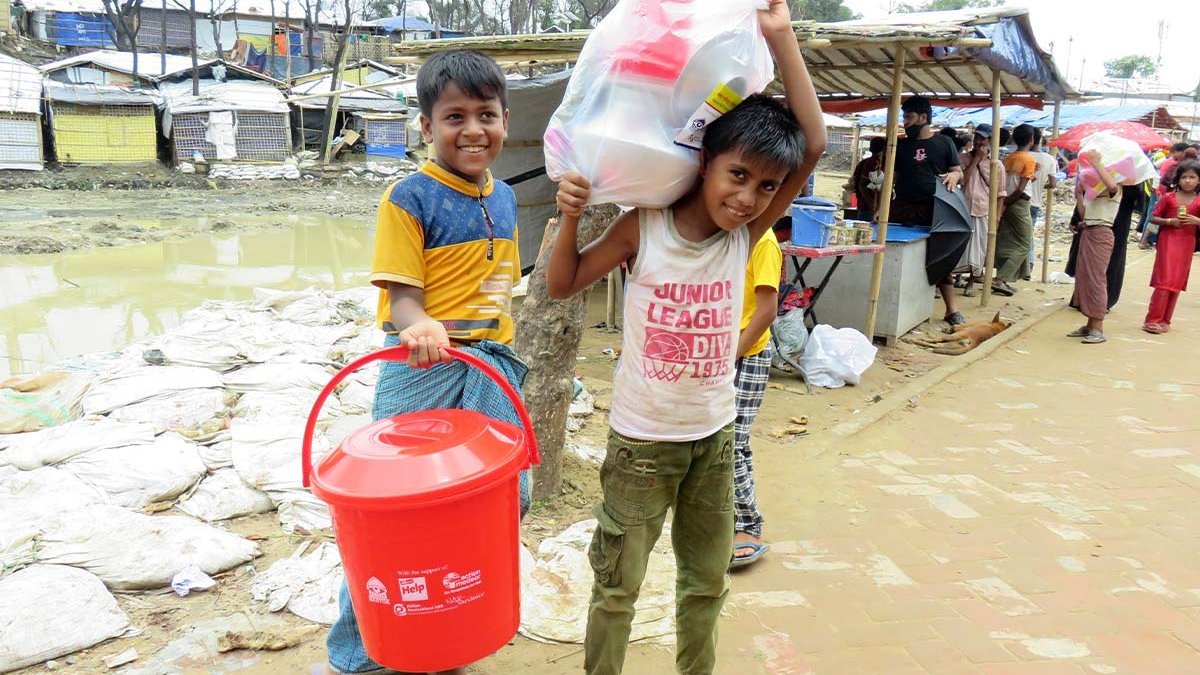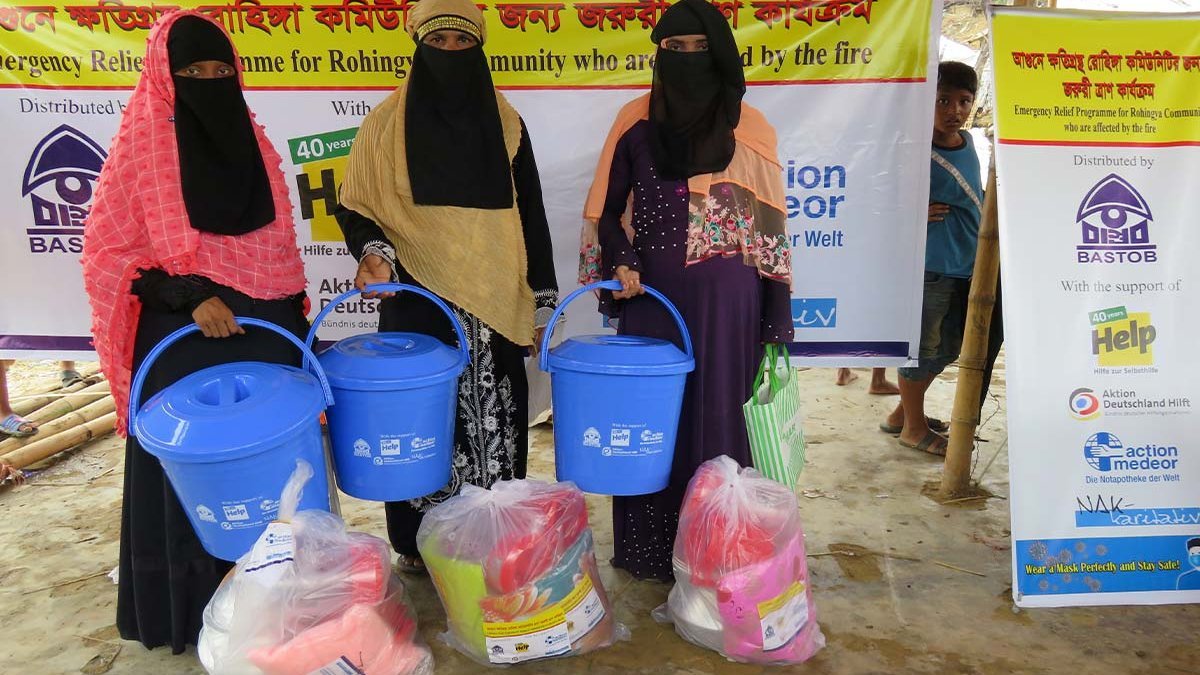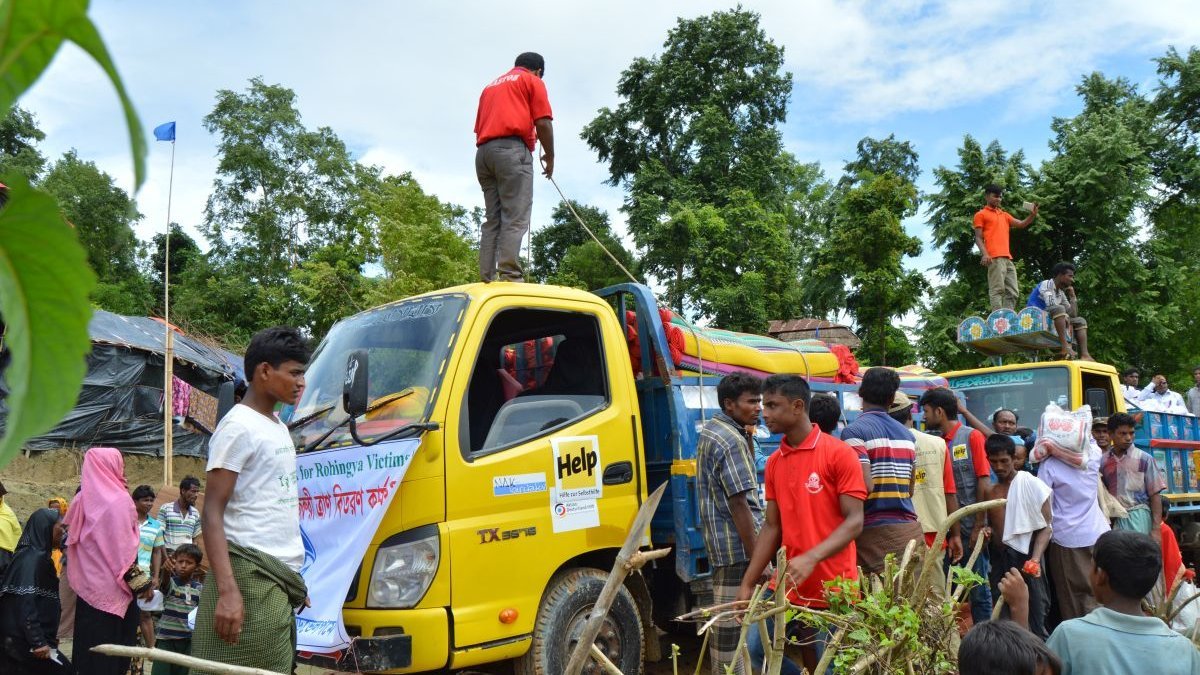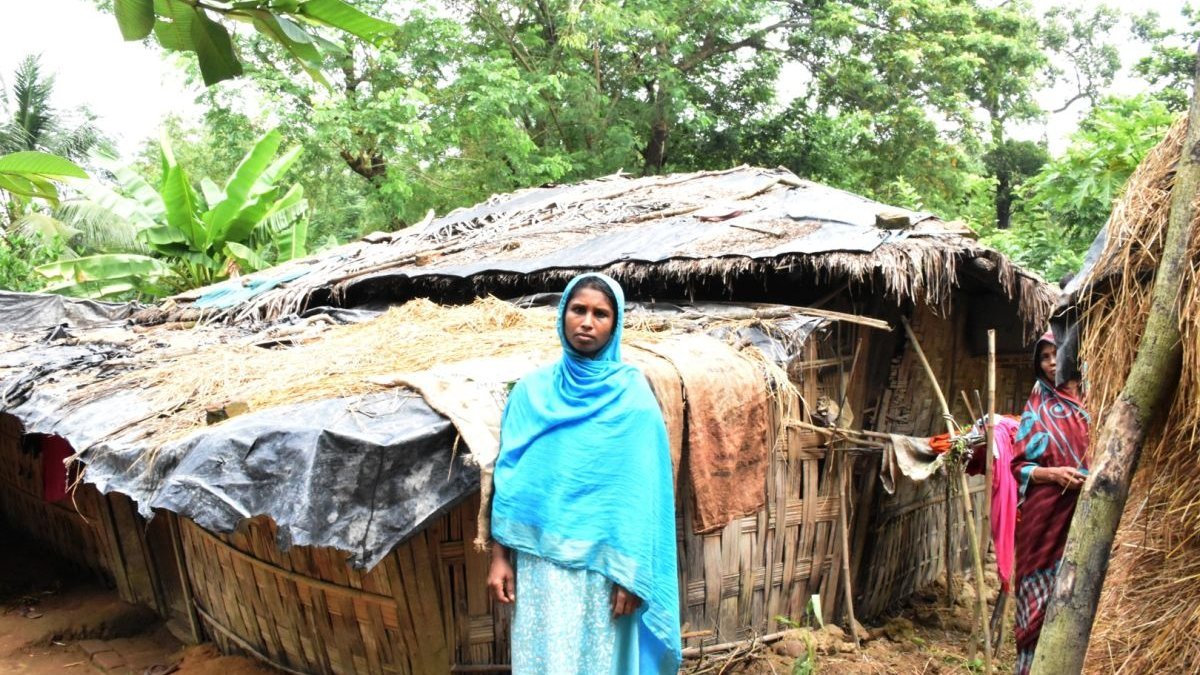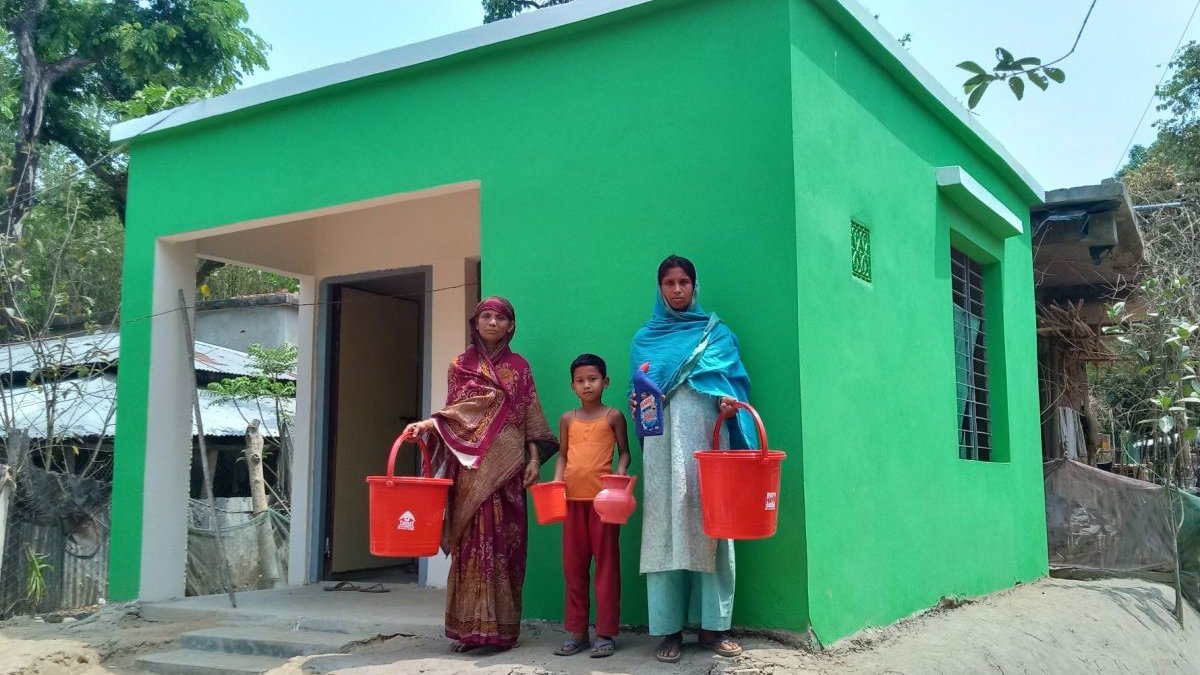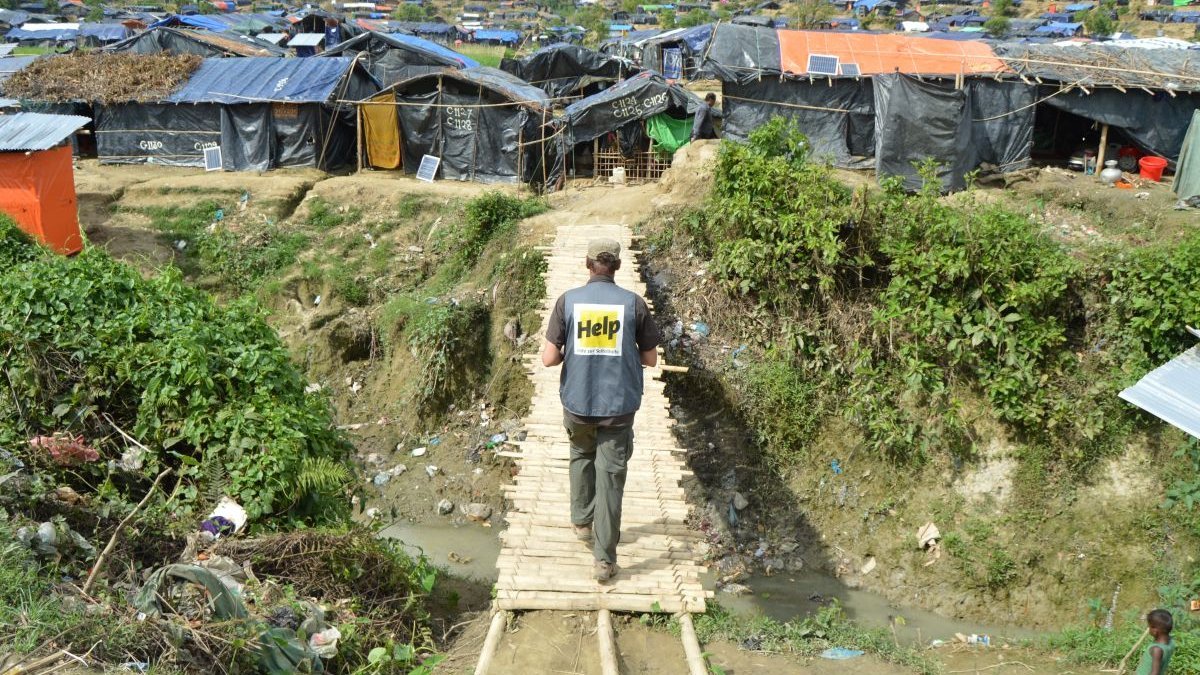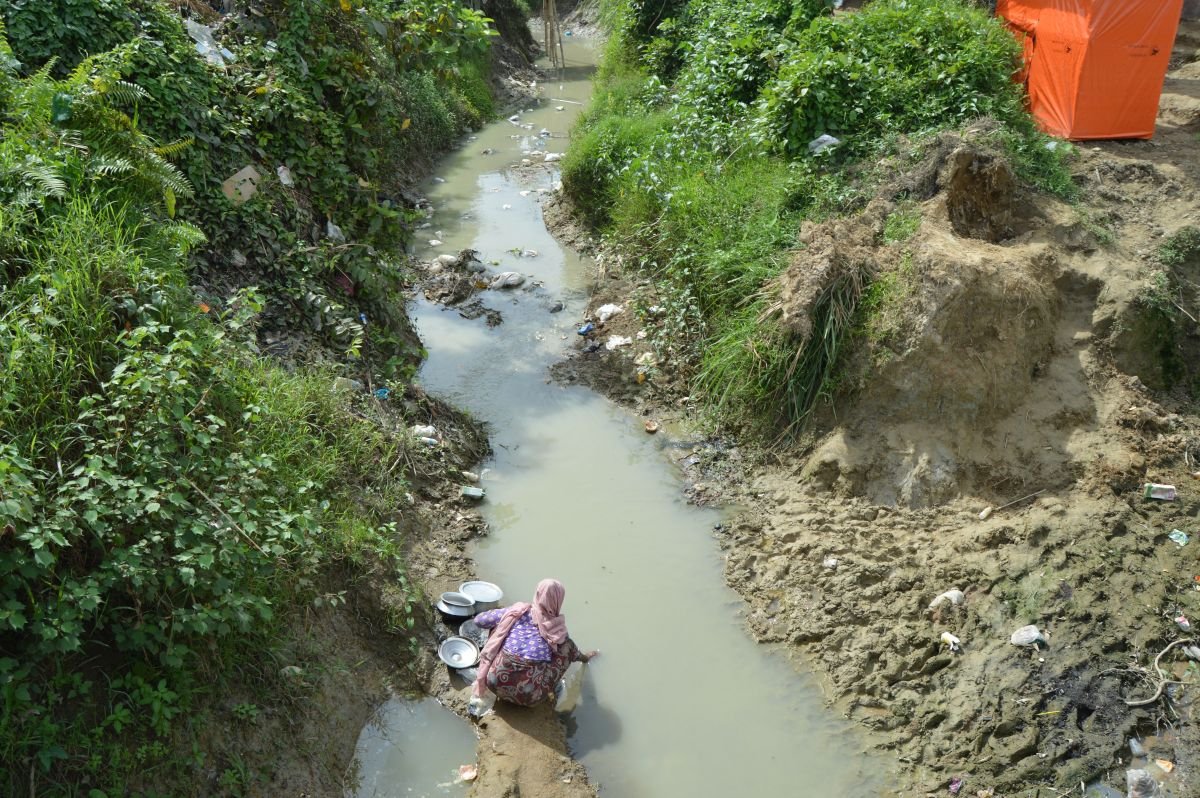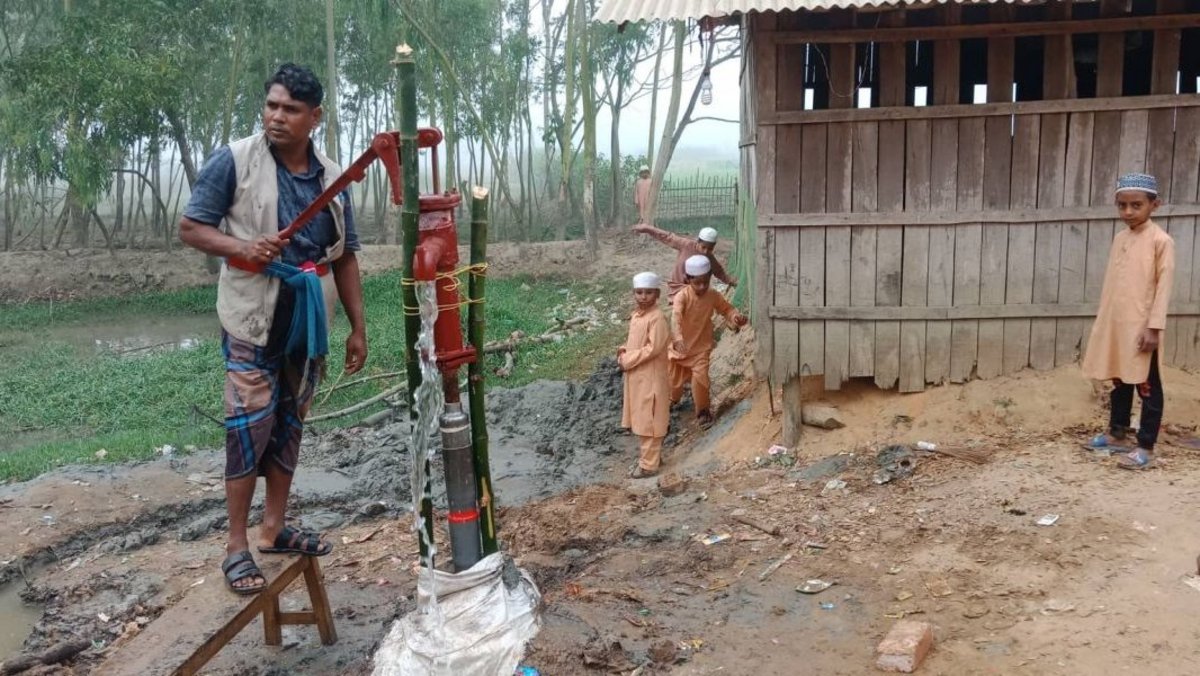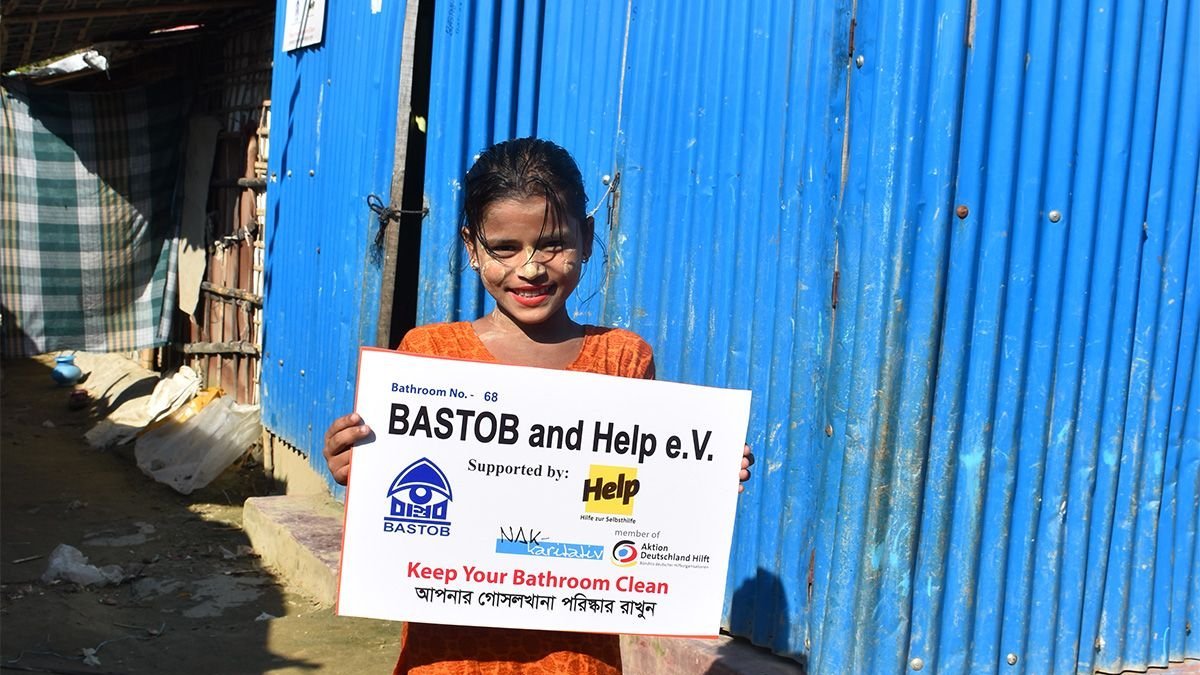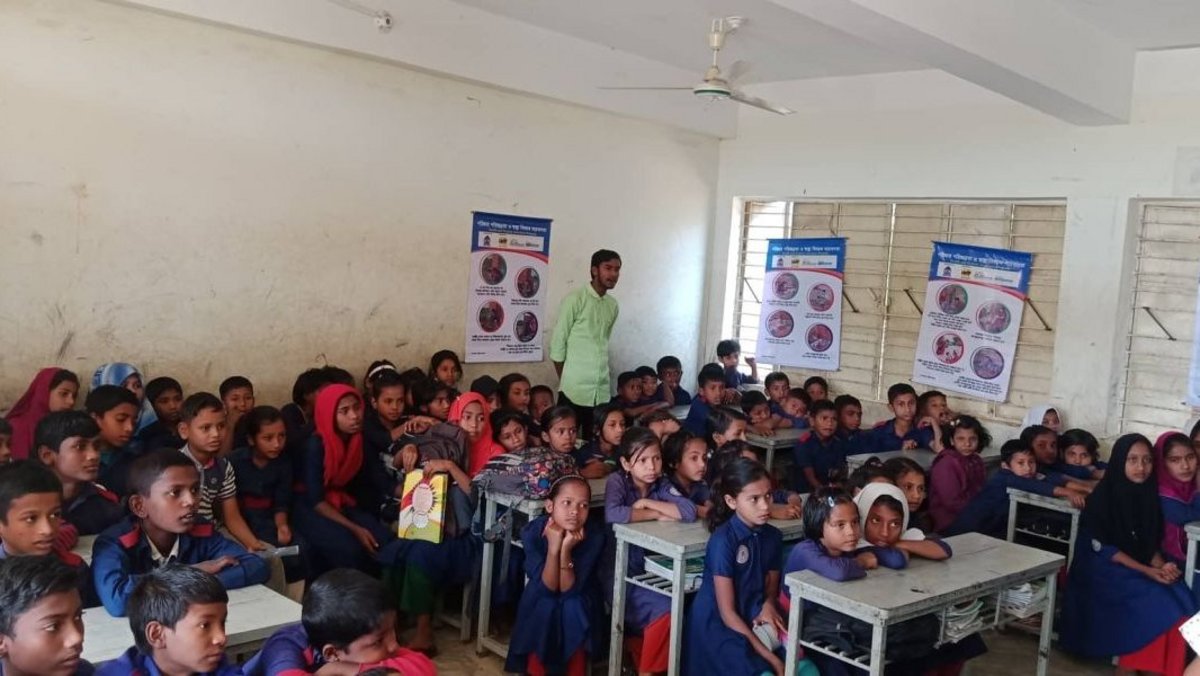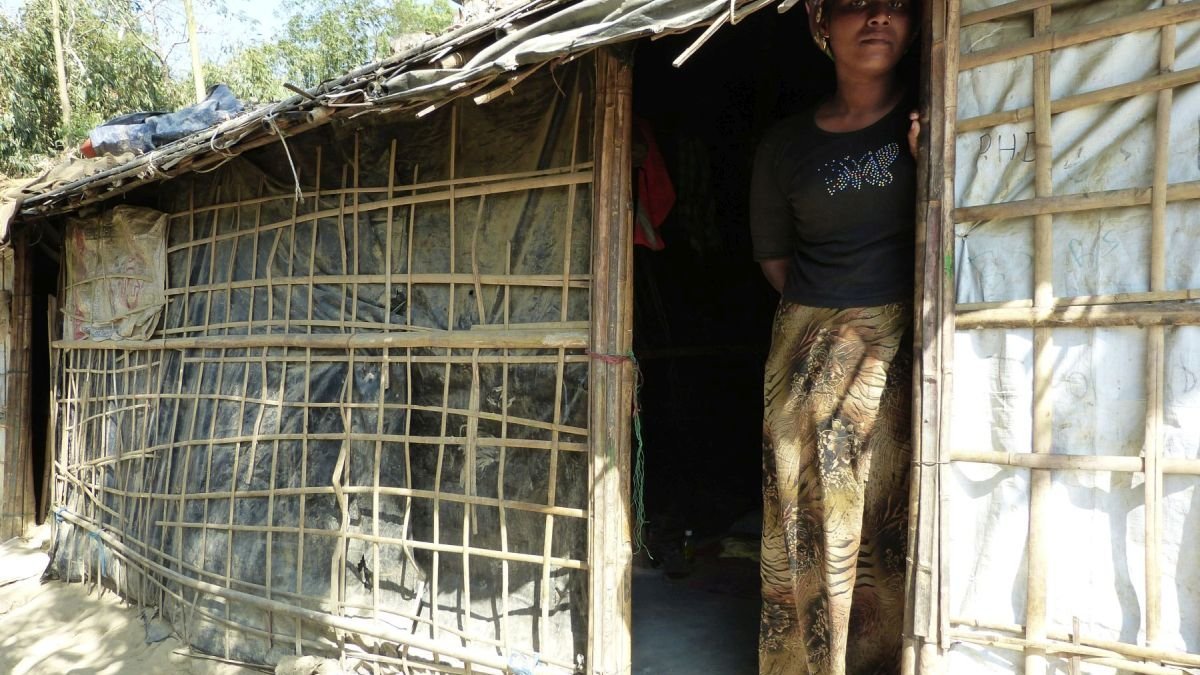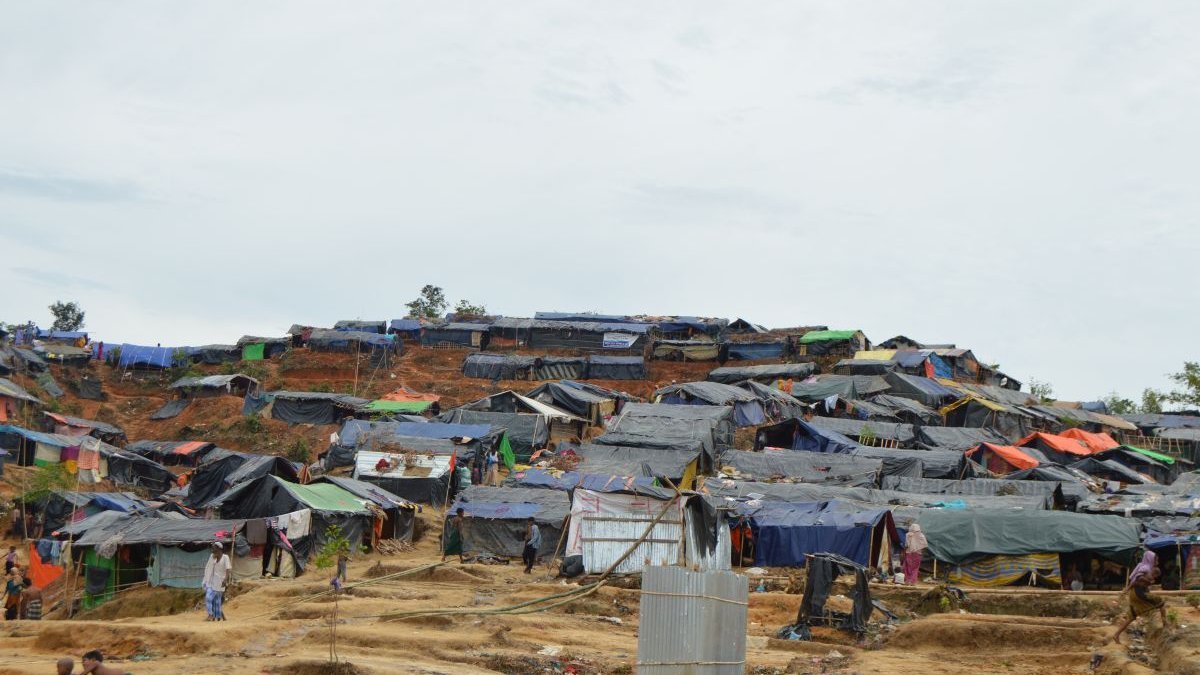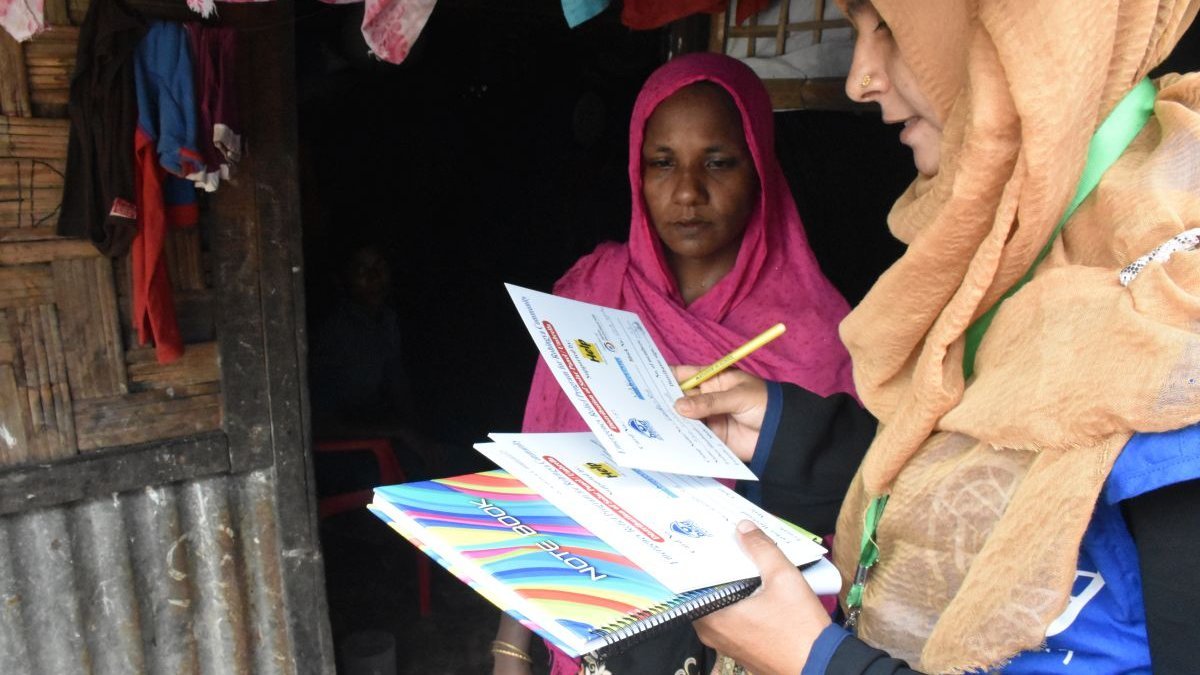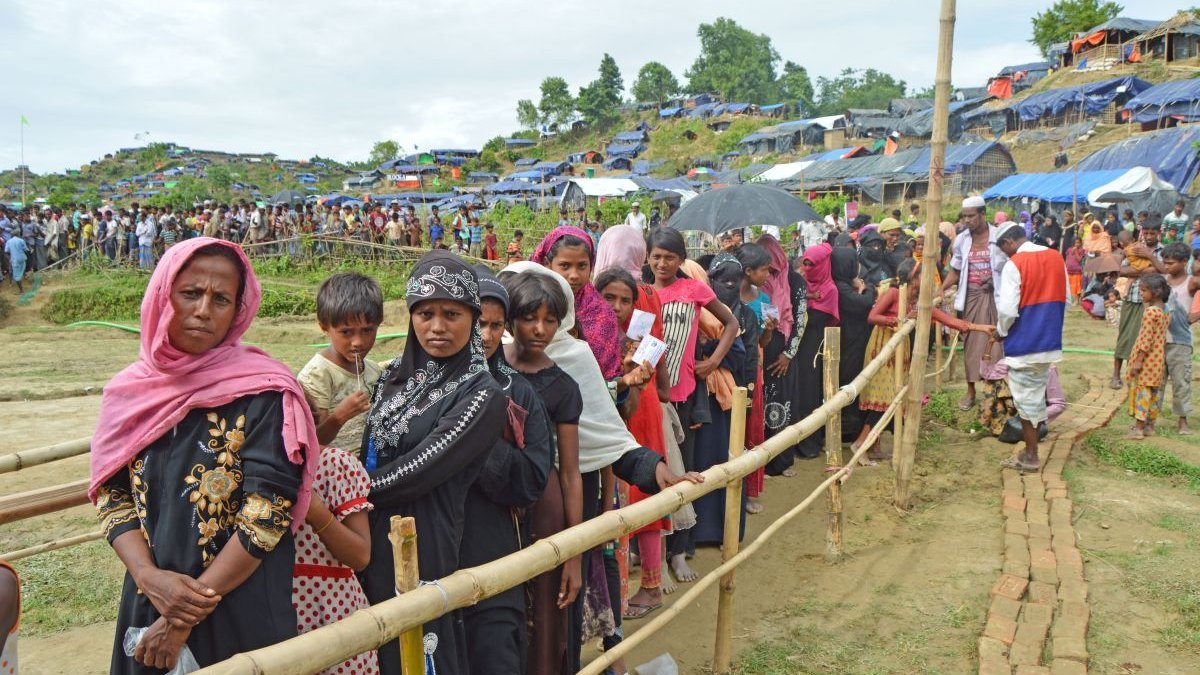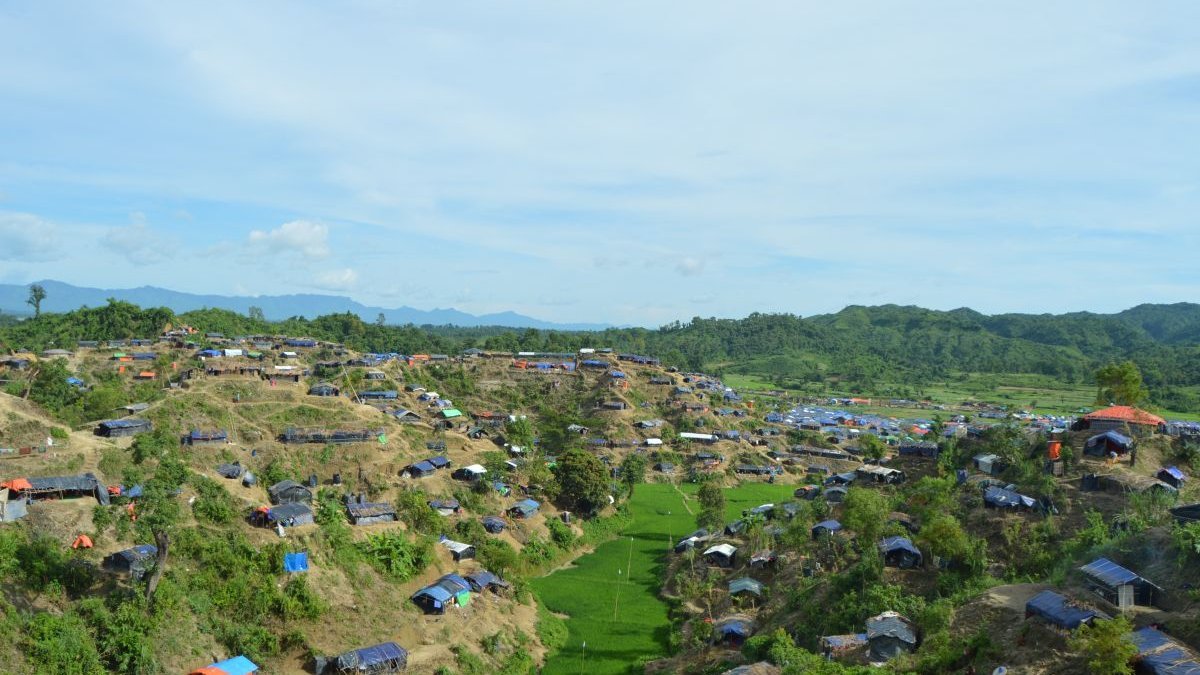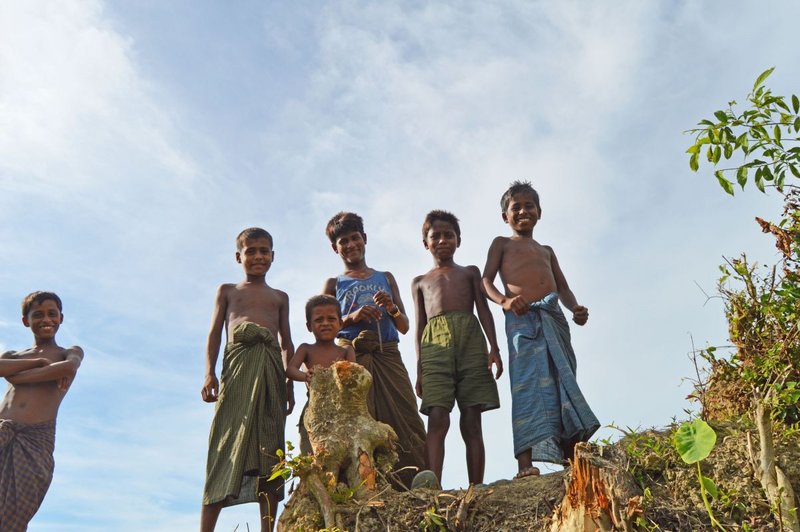Donate for Bangladesh
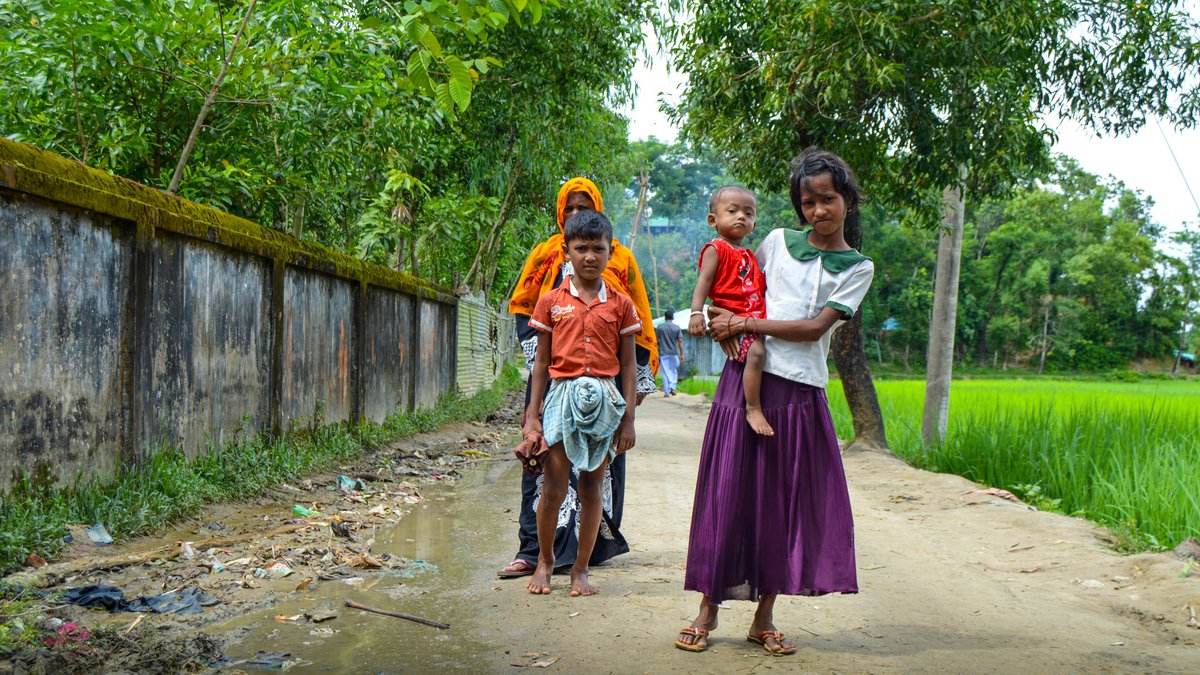
Help in Bangladesh
Fleeing violence, persecution and discrimination: around one million Rohingya from Myanmar are currently seeking refuge in neighboring Bangladesh. There they live in the largest refugee camp in the world – under catastrophic conditions. Together with local partners, Help is providing relief supplies to those affected.
How is Help providing support in Bangladesh?
Emergency aid in the refugee camp in Cox's Bazar
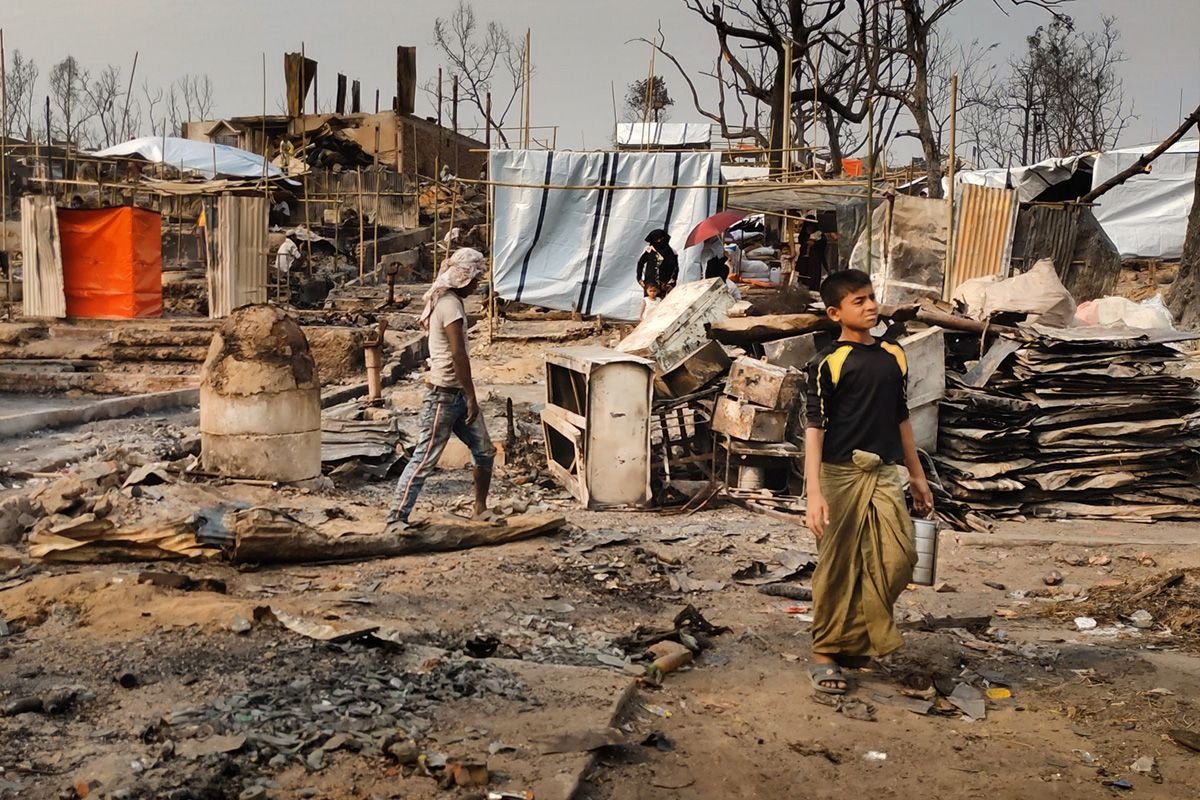
Help regularly provides aid for the Rohingya refugees in Bangladesh. Most recently, in March 2023, 12,000 people were left homeless and in need of help after a serious fire in the Kutupalong refugee camp. Together with our local partner organization, we immediately provided emergency aid.
Help implemented aid projects for the refugees in Bangladesh as soon as the conflict escalated in August 2017. Initially, we provided the Rohingya with relief supplies such as blankets, hygiene articles and clothing. We built latrines and wells to improve the catastrophic hygiene conditions and the general water supply in the long term. We also held training courses to improve the affected people's understanding of hygiene. This enabled us to reduce the risk of infection from diseases and improve people's health in the long term.
The people in the refugee camps and other families in Cox's Bazar are particularly dependent on our help during the monsoon season and the subsequent flooding. In such cases, Help provides emergency aid for the people of Bangladesh. For example, we repair destroyed latrines and bathhouses, distribute hygiene packages and build houses that can withstand the floods.
What is the situation like in Bangladesh?
The Rohingya: a stateless people
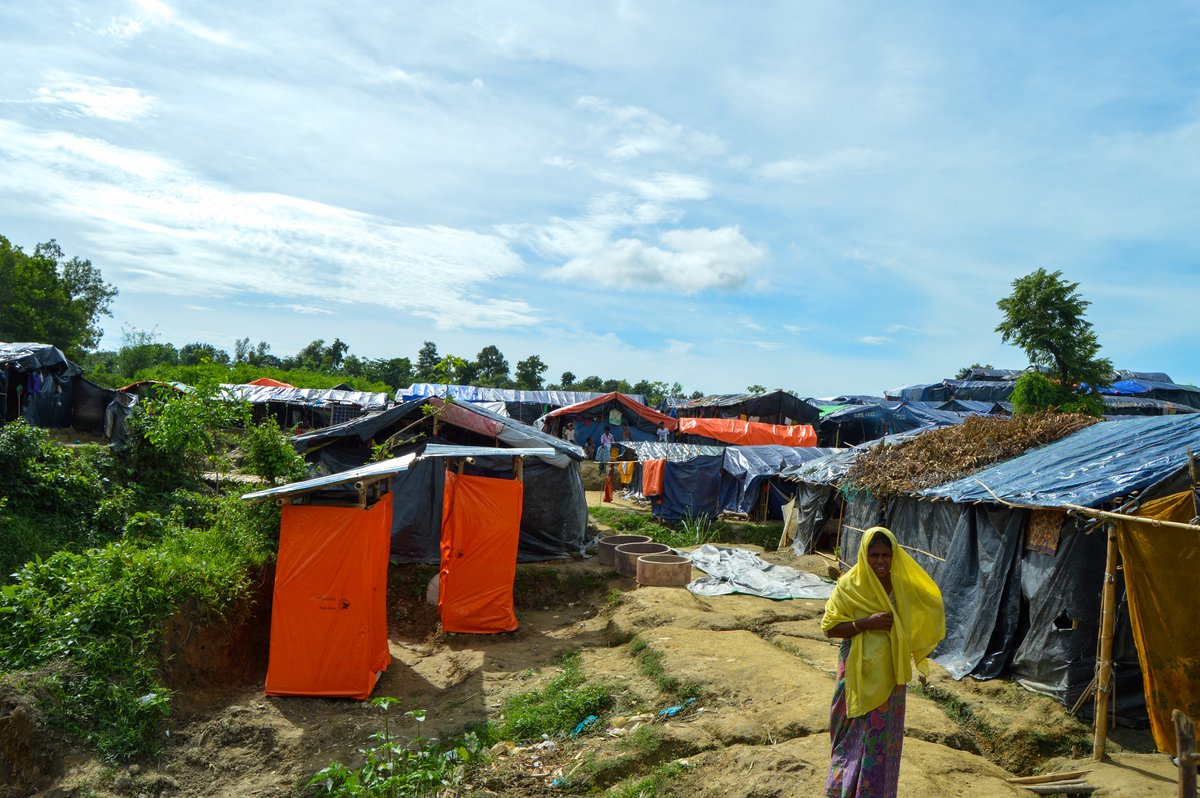
The largest refugee camp in the world is located in the Cox's Bazar region of Bangladesh. It is currently home to over 960,000 Rohingya, one of the most persecuted minorities in the world. Most of them previously lived in Myanmar, but were officially considered stateless there. The resulting discrimination by the state and increasing violence by the military ultimately drove the Rohingya out of their homeland.
In August 2017 alone, over 700,000 Rohingya fled from Myanmar to Bangladesh to escape persecution. But life in the world's largest refugee camp has caused new suffering. They lack everything - water, clothing and especially acceptance. Even in Bangladesh, the refugees are not recognized by the state, are not allowed to work and are not allowed to leave the camp.
In addition, floods in the monsoon season are increasing from year to year due to climate change. The floods not only pose an acute danger to the lives of people in Bangladesh, but also increase the already massive risk of disease and infection in the refugee camps.
Q&A
There are currently over 960,000 Rohingya living in the refugee camps in Bangladesh, around half of whom are children.
The Rohingya are considered stateless in their home country of Myanmar and are persecuted there on ethnic, religious and political grounds. They are a Muslim minority in a predominantly Buddhist country and are affected by discrimination, marginalization and violent conflicts. In 2017, the situation escalated and led to a humanitarian crisis in which around 700,000 Rohingya sought refuge in neighboring Bangladesh. The international community has condemned the persecution and made efforts to improve the situation.
The living conditions of the Rohingya in Bangladesh are extremely difficult and precarious. They mainly live in overcrowded refugee camps with poor sanitary conditions and limited access to clean water. These overcrowded conditions increase the risk of diseases and epidemics such as corona or cholera.
Many Rohingya have fled violence and persecution in Myanmar, which has led to significant traumatic experiences. The mental health of refugees is often at risk and there are limited resources for psychosocial support. In addition, the Rohingya in Bangladesh are heavily dependent on humanitarian aid to meet their basic needs.
Our projects in Bangladesh are funded by the following donors:
- Aktion Deutschland Hilft
- DOHLE Stiftung
Find out which local partners we work with in Bangladesh: Our partners

